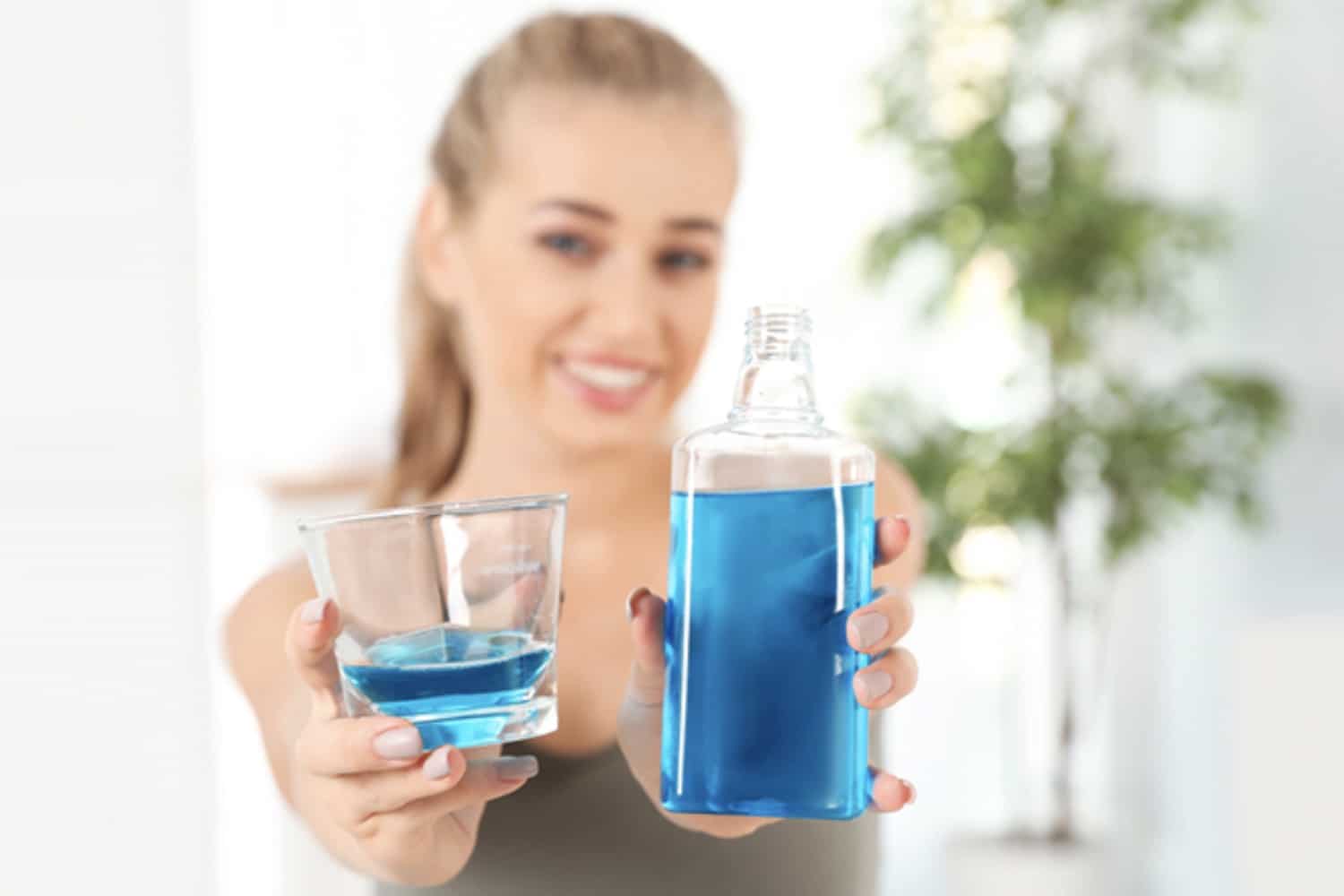Mouthwash as Part of a Daily Oral Care Routine?
Should you use mouthwash in your daily oral care routine? This is a question our dentists get quite often. In short, the answer is yes- using mouthwash is an often-overlooked part of maintaining good oral health and may be a good strategy for some people. While you might find conflicting information out there, the American Dental Association (ADA) says when combined with daily brushing and flossing of your teeth, mouthwash may be helpful for killing bacteria responsible for decay-causing tartar build-up. But are there any drawbacks to be aware of? In this post, we’ll explore the potential benefits and risks of daily mouthwash use. The minty fresh feeling you get from using mouthwash is great for temporarily freshening your breath or removing a bad taste in your mouth. What you may not know is that minty burst of mouthwash can also get to the bacteria hiding in places that can’t be reached with regular brushing. Most mouthwashes can kill bacteria on both tooth and non-tooth surfaces (soft tissues like gums and tongue). Swishing it around your mouth may be a good strategy to help prevent or reduce inflammation, gingivitis, and plaque. Bacteria is ever-present on our bodies- especially thriving in places that are warm and moist. In our mouths, it lives in our “biofilm”, which is a complex and sophisticated colony of bacteria. Some bacteria are needed to keep a healthy balance in your mouth- those are called “good” bacteria, and they help us fight “bad” bacteria. If the bacteria in your biofilm are allowed to build up to unhealthy levels, that balance of good and bad bacteria is thrown off. And it will begin to show as a white or yellowish substance on our teeth and gums called plaque. If that plaque is allowed to harden, it becomes tartar. Tartar can form both above and below the gumline and is a source of cavity-causing tooth decay and gum disease. Only your dentist and dental hygienist can remove tartar once it has formed. If the good and bad bacteria in our biofilm aren’t in balance, it can also contribute to bad breath (halitosis) and a variety of other oral health concerns related to tartar buildup, poor oral hygiene, and even poor overall health. It is best to try to remove plaque from your teeth before tartar forms. Dentists recommend brushing your teeth twice per day (for at least two minutes each time) and flossing at least once per day. Talk to your dentist to see if daily mouthwash rinses could also be helpful for you. These at-home care strategies, on top of visiting your dentist for routine check-ups and professional cleanings twice per year, are great ways to keep your mouth healthy. There are some risks/side effects to be mindful of when it comes to mouthwash use. Those concerns include the following:
- Certain mouthwashes may cause staining of your teeth with prolonged use
- Mouthwashes can be high in alcohol, which can dry out your mouth. Your dentist may recommend an alcohol-free mouthwash if this is a concern for you.
- Some mouthwashes only mask odors, they don’t treat the underlying problem and may even cover up serious health problems. Thus, it is important to discuss this with your dentist to identify the cause of your bad breath before beginning a daily mouthwash regimen.
- Some people may experience irritation from mouthwash
- Accidental consumption of mouthwash can be harmful – it shouldn’t be used by children under the age of 6, or by any child or adult who doesn’t understand not to swallow the mouthwash.
- Some mouthwashes contain fluoride, so if you are already using a daily fluoride toothpaste, mouthwash with fluoride may put you over the recommended daily amount
If your dentist recommends making mouthwash part of your daily routine, how do you know which mouthwash to choose? There is no shortage of choices in the mouthwash section at your favorite store and it can be overwhelming. Some mouthwashes are considered therapeutic, and some are considered cosmetic. Talk to your dentist to see if there is a certain kind they recommend for your unique circumstances. Always look for the ADA Seal of Acceptance when choosing your oral healthcare products. For a product to earn that seal, they must present compelling evidence to the ADA to show the product does what it says it will do. Like anything concerning your health, it is always best to talk to a professional to determine the best options for your individual situation. The friendly dentists and staff of Today’s Dental are here to help with any of your oral health questions.






